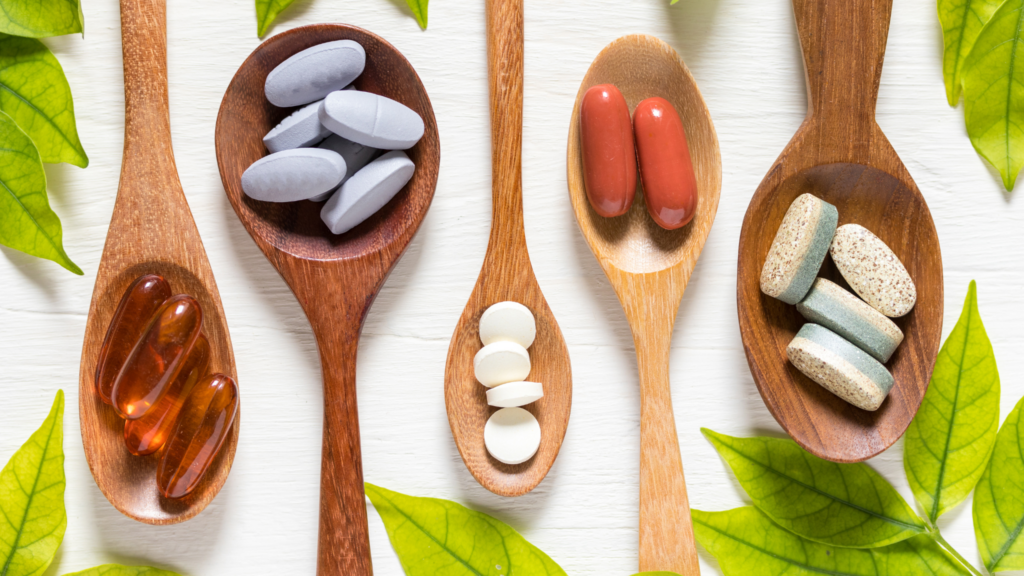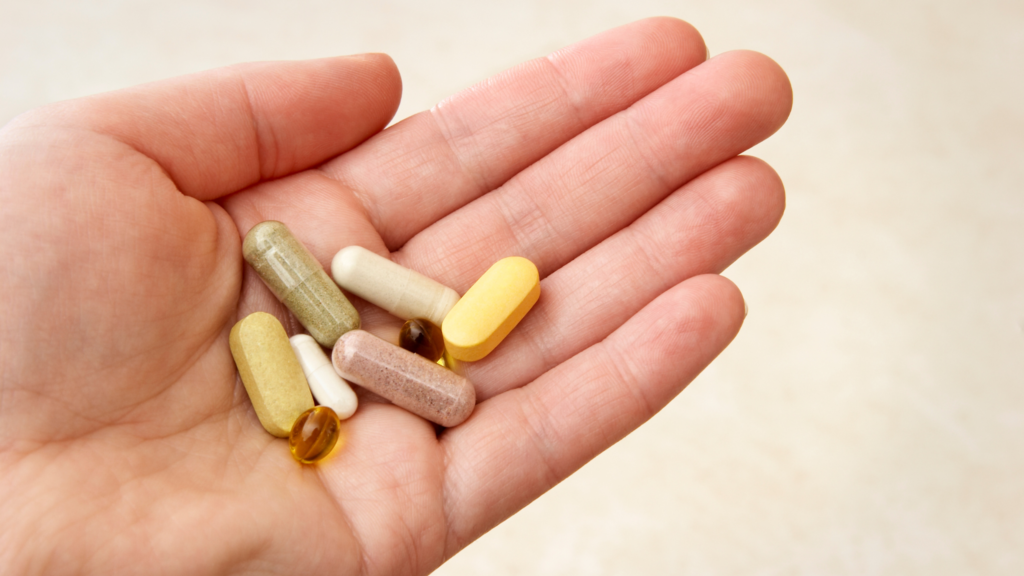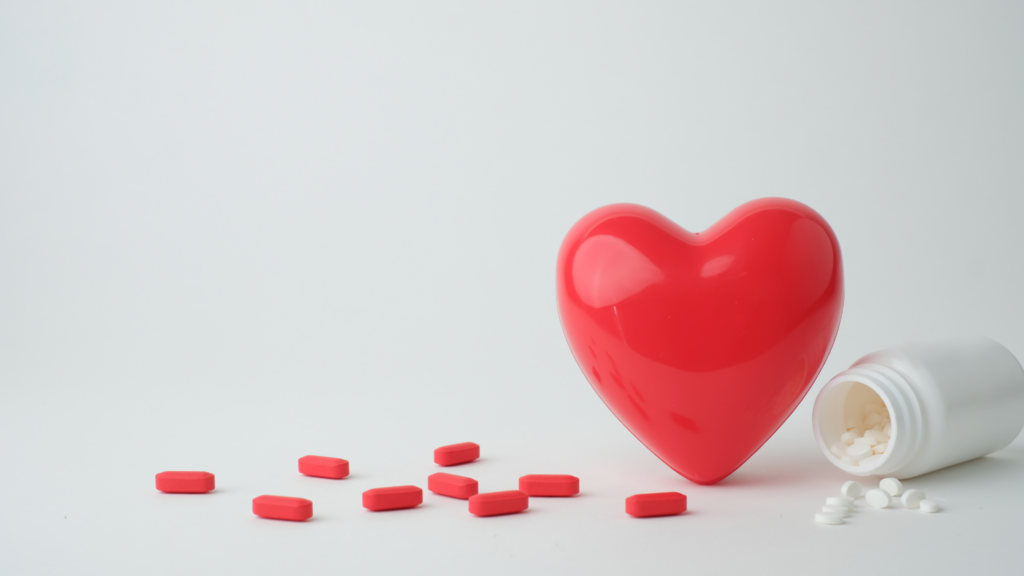
The modern world brings tons of information, and many people want to learn about the best supplements for heart health. You want to feel an improvement but might not. Therefore, it’s wise to focus on exercise and a healthy diet to protect your heart and ensure that you’re at a reduced risk for heart problems.
Dietary supplements can be consumed either by drinking or eating. They typically contain minerals, vitamins, plants, herbs, and amino acids (which are the building blocks of protein). You might find them in capsule, pill, liquid, or tablet form, and they often promise to boost your heart health.
Though you want to improve your blood sugar, blood pressure, and overall circulatory health, it’s important to know which common dietary supplements are ideal and what to avoid. Learn more now!

Vitamins and minerals can offer cardiovascular health benefits if you take them in the right doses. You should get most of your nutrients from whole foods, but many people don’t get the recommended intakes. Therefore, supplementation can be highly beneficial.
Make sure you’re getting enough vitamin D supplementation and folic acid, among others. Just remember that supplements can’t make up for your poor eating habits.
Even those with good eating habits find it hard to get enough healthy foods that contain enough vitamin D. Supplements can fill in those gaps.
Ultimately, the best form of fiber is from food, but many people don’t get enough from their diets, so they use a fiber supplement. It should contain both insoluble and soluble varieties.
Overall, fiber can help with high cholesterol levels and offers many heart health benefits. Psyllium fiber could help you lower cholesterol when you use it in conjunction with a diet low in saturated fats.
Make sure that you don’t accidentally purchase laxatives instead. The labels often mention regulating bowel movements.
CoQ10 is similar to vitamins. It’s found in all cells of the body. In fact, your body makes it, and the cells require it to produce energy for maintenance and growth.
However, CoQ10 is also an antioxidant, which will protect your body from damage caused by more harmful molecules. Overall, CoQ10 is naturally found in various foods, but you’ll get the most out of organ meats, such as:
In a sense, CoQ10 offers heart health support because it will help your enzymes protect the skeletal muscles and heart. Likewise, some people claim it will prevent heart failure, speed up recovery from exercise, and boost energy levels.
Garlic can ensure your food tastes better, but when used in supplement form, it could help to treat coronary artery disease and high blood pressure.
Overall, garlic affects the body’s blood-clotting abilities, so it could increase the risk of bleeding. If you need a medical procedure, dental work, or surgery, you should avoid consuming garlic about two weeks beforehand.
People have used green tea for many centuries, and it can help lower high cholesterol levels. Overall, it’s been shown to lower LDL cholesterol levels and total cholesterol. It’s wise to drink three cups each day instead of using the extract or supplement form.
Omega-3 fatty acids are often found in fatty fish and vegetables. The fatty acids can’t be made by the body, so they’re often consumed through fish oil supplements or through the diet.
Overall, fish oil can lower how many triglycerides your body produces. High triglyceride levels could lead to stroke, heart disease, and coronary artery disease. Omega-3 polyunsaturated fatty acids, along with exercise and diet, could reduce the amount of triglycerides in your blood. Fish oil is definitely something to incorporate into your everyday life!
L-carnitine helps transport the fat into the mitochondria, which is where fats turn into energy. The amino acid is crucial for heart functionality.
Many studies claim that L-carnitine offered a reduction in angina symptoms and improved heart health.
Those with congestive heart failure might not get enough oxygen to the heart, which damages the heart muscle. Likewise, taking L-carnitine after a heart attack can reduce complications and damage.
Research shows that low magnesium levels might lead to cardiovascular disease. Overall, the cardiovascular risk factors can include:
You can find many types of magnesium supplements, including magnesium sulfate, magnesium hydroxide, magnesium gluconate, and magnesium citrate.
Though magnesium can slightly lower blood pressure in some patients, those with kidney disease should be cautious when taking it and speak to their doctor first.
Red yeast rice is found in Chinese medicine. Overall, the red rice is fermented with yeast to create low-dose statin drugs. They’re often used to reduce LDL cholesterol levels.
Some people use red yeast rice because they feel it’s safer and more natural than prescription statins. However, the FDA hasn’t regulated or tested the theory.
If you wish to have healthy cholesterol levels, red yeast rice might not be the best solution. It contains Citrinin, which could lead to kidney failure.
Choline is found in meat, milk, and eggs, but if people consume too much of it, they could raise their TMAO (trimethylamine N-oxide) levels. This can lead to blood clots.
When blood clotting happens, it can block blood flow to the heart, which can lead to heart attack, death, stroke, and damage to the organs.
Overall, TMAOs are associated with high risks of heart disease, so it’s wise to be careful when consuming supplements that contain choline.

If you’re planning to take over-the-counter supplements to achieve better immune function and lower your risk of heart disease, it’s wise to remember that they aren’t all safe. Make sure you talk to your doctor first and let them know you wish to use supplements.
Dietary supplements could interact with other medications you take, trigger allergic reactions, and lead to side effects. Research your options thoroughly, and be careful!
Copyright © CardiacKrock.com. 2022 All rights reserved. | Sitemap